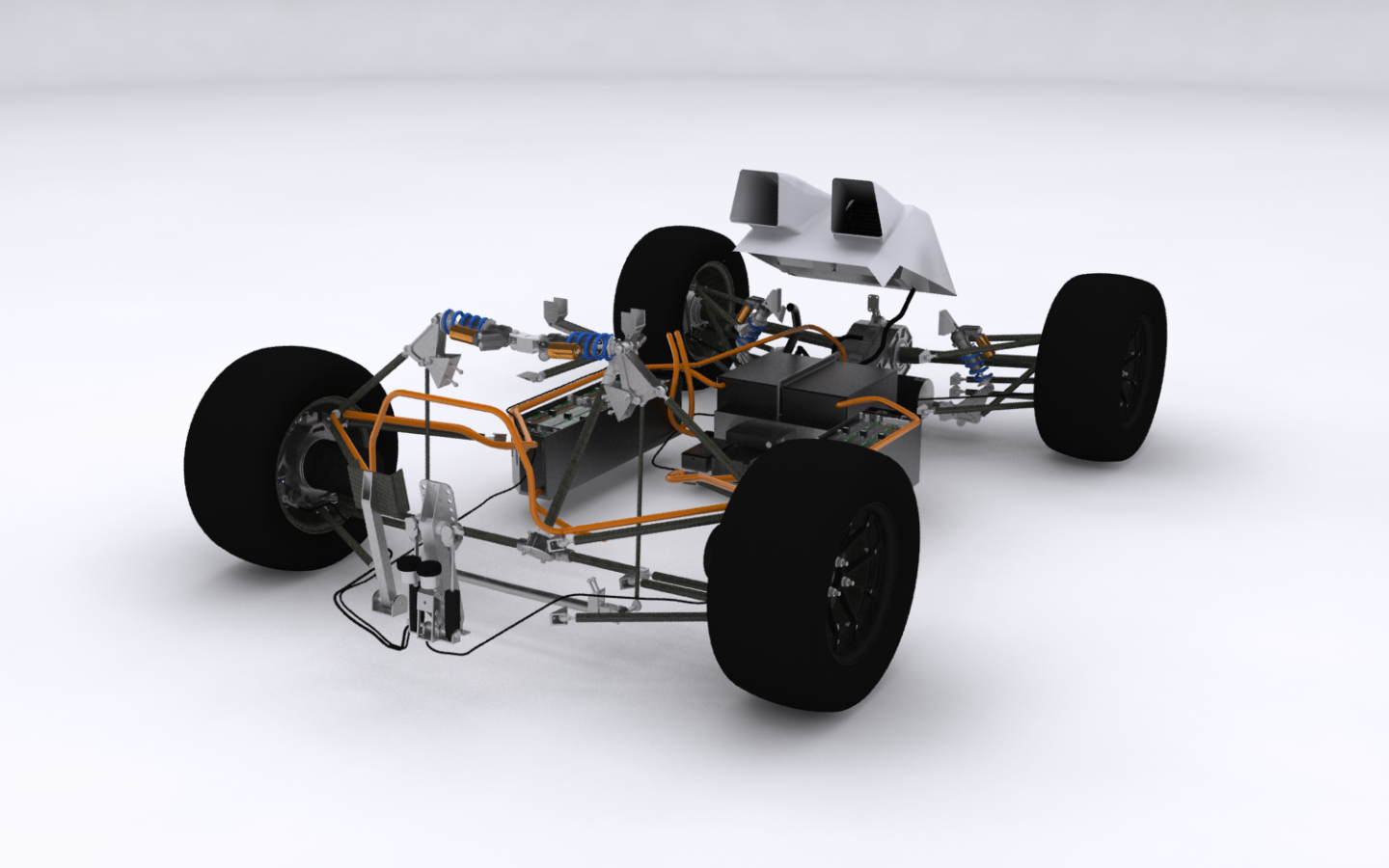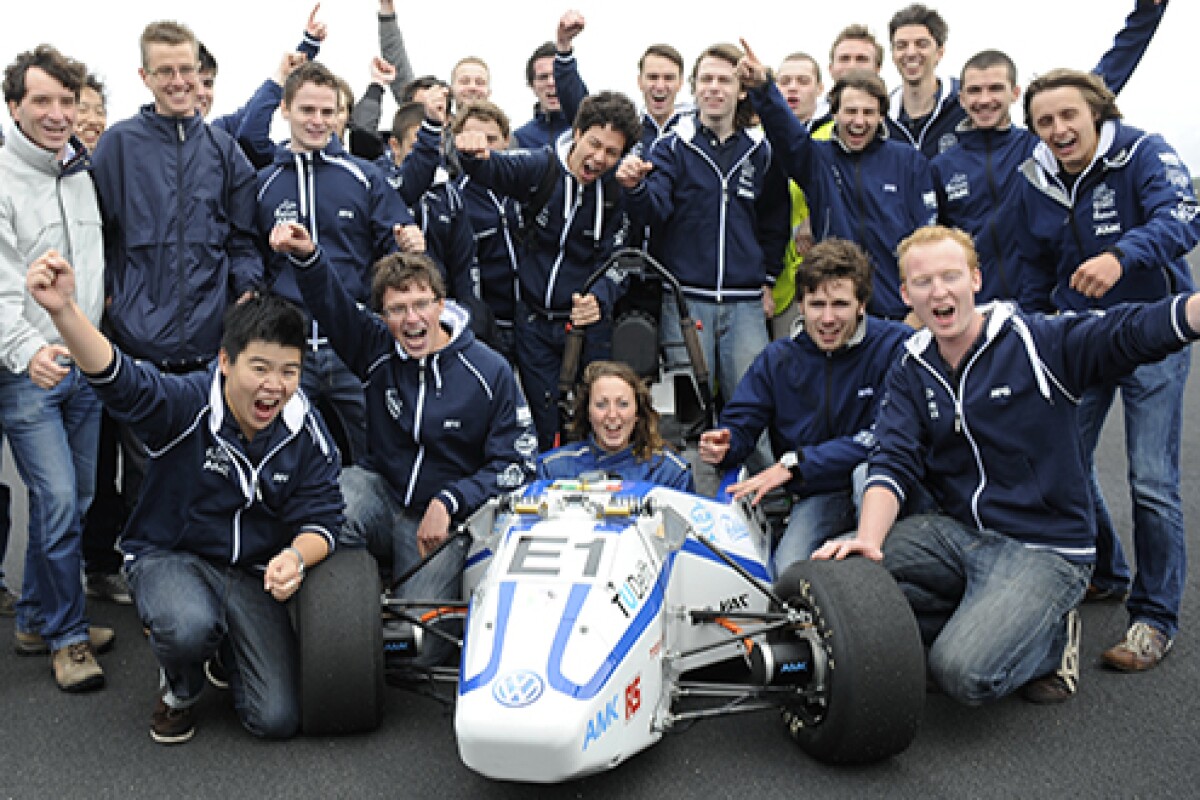Most students are happy to graduate college with a degree and a few work contacts, but students from The Netherlands' Delft University of Technology have a good shot at graduating with a world record. Just days after a group of Delft students grabbed the human powered speed record, another group set a world acceleration record for electric vehicles.
The team didn't just beat the standing record for 0-100 km/h (62 mph) in an electric car, but beat its own expectations handily. On September 20, the students hit the mark in 2.15 seconds, besting the previous time of 2.68 seconds by just over half a second. They used their self-built DUT12 race car to complete the feat.
"We thought that under these conditions we’d be happy with 2.30, but we really didn’t expect 2.15," says DUT Racing team manager Tim de Moree.
Expected or not, that 2.15-second time is quite impressive. Not only is it the fastest for an electric car, but it's faster than many a notable gas vehicle, including the Bugatti Veyron, which has long advertised a 2.5-second 0-62 mph time, and the 500-hp Ariel Atom V8, which lists in at 2.3 seconds.
DUT Racing built the DUT12 to compete in last year's Formula Student competition. The group's second electric car, the update from the DUT11 introduced a four-wheel drive system comprising four individual motors. The students were able to harness the full power of the motors for the record attempt, unlike in Formula Student racing where they had to cap it at 114 hp. By freeing up the full 135 hp output, the team moved closer to one horse per kilogram and shot out of the gate with emphasis.

The ultra-lightweight, single-seat DUT12 weighs a mere 320 lb (145 kg) thanks to its snug CFRP monocoque. The lithium-polymer batteries are mounted on both sides of the driver, a change from the rear-mounted battery of the DUT11 that increases the racer's handling ability. To help keep the overall weight as low as possible, the Delft team swapped drivers for the record attempt, putting the helmet on 24-year-old Marly Kuijpers, the crew's most petite member.
When speaking of the feeling of breaking the record, Kuijpers said simply, "It feels like a roller coaster, that part when you just drop over the edge."








